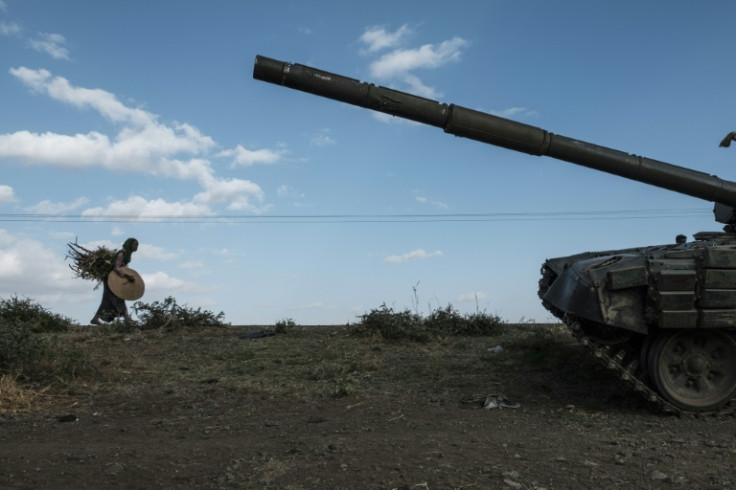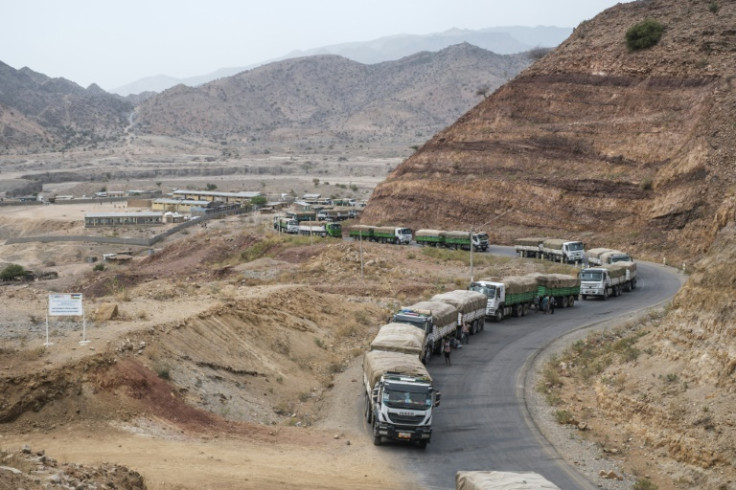Ethiopia Govt Says Aid Flowing To Tigray But Rebels Deny

The Ethiopian government said Friday that 70 percent of the war-stricken northern region of Tigray was now under federal army control and that aid was being sent in -- claims swiftly denied by Tigrayan rebels.
"70% of Tigray is under ENDF (Ethiopian National Defence Force)," Prime Minister Abiy Ahmed's national security adviser Redwan Hussein posted on Twitter.
"Aid is flowing like no other times," he said, adding that trucks of food and medicine had been sent to the strategic city of Shire and that flights were being allowed into the area.
The restoration of aid to the region of about six million people is one of the key planks of a breakthrough peace deal between the federal government and the Tigray People's Liberation Front (TPLF) to end two years of brutal war in northern Ethiopia.
But the rebels denied Redwan's claims.
"He is plucking his facts out of thin air," TPLF spokesman Getachew Reda told AFP in a message.
AFP was not able to independently verify the claims as Tigray remains inaccessible to journalists.
The northernmost region is in the grip of a severe humanitarian crisis due to lack of food and medicine, and there is limited access to basic services including electricity, banking and communications.
Redwan's comments were also dismissed by a humanitarian worker based in Tigray.
"What Redwan tweeted is completely false," the worker told AFP. "No aid is allowed to enter Shire city at all.
"No services have been reconnected and no flights are allowed."
The peace deal was signed in the South African capital Pretoria on November 2 after little more than a week of negotiations brokered by the African Union between federal government and TPLF delegations.
It notably calls for the cessation of hostilities, restoration of humanitarian aid, the re-establishment of federal authority over Tigray and the disarming of TPLF fighters.
On Wednesday, the World Health Organization called for a massive influx of food and medicines into Tigray following the ceasefire deal, saying desperately-needed aid had not yet been allowed in.
"Many people are dying from treatable diseases. Many people are dying from starvation," WHO chief Tedros Adhanom Ghebreyesus, who hails from Tigray, told a press conference.
"Even in the middle of fighting, civilians need food, need medicine. It cannot be a condition."
Talks have been under way in the Kenyan capital Nairobi this week between representatives of the warring sides to follow up on the Pretoria deal.
The meetings were due to discuss the disarmament of the rebels, while the AU said they should also provide a "roadmap" for immediate humanitarian access and restoration of services" in Tigray.
The conflict between the TPLF and pro-Abiy forces, which include regional militias and the Eritrean army, has caused an untold number of deaths, forced more than two million from their homes and sparked reports of horrific abuses by all parties.
Estimates of casualties vary widely, with the United States saying that as many as half a million people have died, while the EU's foreign envoy Josep Borrell said that more than 100,000 people may have been killed.
UN investigators have accused Addis Ababa of possible crimes against humanity in Tigray and of using starvation as a weapon of war -- claims denied by the Ethiopian authorities.
Abiy -- a Nobel Peace Prize laureate -- sent troops into Tigray on November 4, 2020 to topple the TPLF, the region's ruling party, in response to what he said were attacks by the group on federal army camps.


© Copyright AFP 2025. All rights reserved.





















